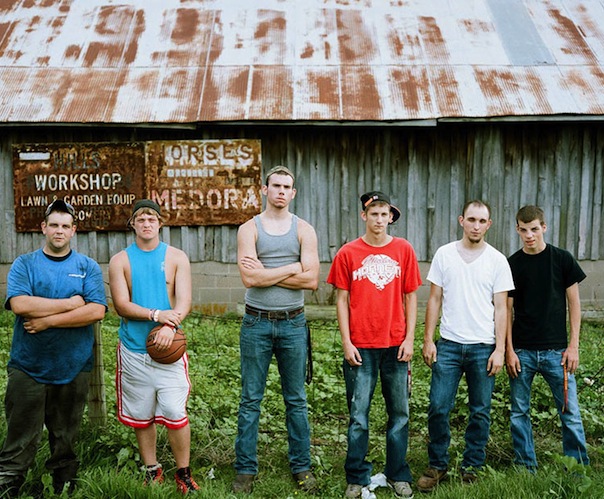Fuse Film Review: “Medora” — Dreaming the Impossible Dream
Director/producers Andrew Cohn and Davy Rothbart have constructed a film that ties the desperation of Medora’s shrinking ambitions to the struggle of its scrappy team to win a single game that could suggest a small hope for the future.
Medora, directed by Andrew Cohn and Davy Rothbart. Presented by The DocYard at the Brattle Theatre, Cambridge, MA, November 14th at 8 p.m.
By Tim Jackson
Medora starts with a coach berating his basketball team: “Are you kidding me? Well my assumptions were right. You had no points in the fourth quarter. Zero. None. In eight minutes. Eight minutes! Eight minutes. Zero! Are you kiddin’ me? Are you kiddin’ me? Gollee guys. Zero. Zero! Unbelievable! Unbelievable.” A dispirited group of adolescent boys sit in benches in various stages of dejection and defeat looking like they would rather be anywhere else.
And so begins a tale of the most losing-est basketball team in Indiana – the Medora Hornets. But there’s a sting behind the story. This once thriving American town is all but abandoned because of the unemployment caused by the closing of the brick and plastic factories. Grim faced church-going Hoosiers, as well as broken families, alcoholics, and drug addicts, now populate these flat sad landscapes. It’s not much of place to cultivate teenage dreams. It may be a story not untypical of the increasingly broken American dream.
But there is the basketball. Though the team hasn’t won a game in quite a while, a sad metaphor for a town lost to changing times, a mom says to her dejected son, “Ya gotta keep goin'”. “Yea”, he responds with little enthusiasm. His family sits on the couch listening to Obama speak: “Many people watching tonight can probably remember a time when finding a good job meant showing up at a nearby factory. If you worked hard, chances are you had a job for life . . . That world has changed.” None feel it more than these people, where even the once inspiring efforts of high school basketball reap few rewards. Most of the area schools have been consolidated into larger institutions, which provides them with a larger pool of players. Medora High School proudly maintains its autonomy in the face of these changes, choosing its basketball team out of a limited pick of players. The coach’s occasional optimism falls on deaf ears: the players’ dispirited and pimpled faces — buried in their hands — are miles away from any dream of glory.
Still the optimism and exuberance of adolescence endure in proms, love interests, graduation, hoped for college careers, maybe a meaningful job, and even the chance to raise a family. Basketball becomes part of the teams’s yearning for a promising future. Director/producers Andrew Cohn and Davy Rothbart have constructed a film that ties the desperation of Medora’s shrinking ambitions to the struggle of its scrappy team to win a single game that could suggest even the smallest hope for the future. A school principle muses: “These small towns I think is what this country’s based on. These towns are fading away. People sometimes don’t realize what they have until it’s gone.” Beyond providing compelling drama about the struggle for one basketball victory, Medora looks at some quietly desperate lives and — as a metaphor for dozens of similarly small towns we will never see — bequeaths them a brief moment of dignity.
Tim Jackson is an assistant professor at the New England Institute of Art in the Digital Film and Video Department. His music career in Boston began in the 1970s and includes some 20 groups, many recordings, national and international tours, and contributions to film soundtracks. He studied theater and English as an undergraduate and has also has worked helter skelter as an actor and member of SAG and AFTRA since the 1980s. He has directed two documentaries: Chaos and Order: Making American Theater about the American Repertory Theater, and Radical Jesters, which profiles the practices of 11 interventionist artists and agit-prop performance groups. He is currently finishing a third documentary, When Things Go Wrong, about the Boston singer/songwriter Robin Lane, with whom he has worked for 30 years. You can read more of his work on his blog.

